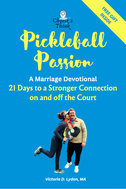|
Copyright ©Choose 2 Think™ 2013-present. All rights reserved.
Terms and Conditions | Privacy Policy | Disclaimer | Site Credits Choose 2 Think™ is owned and operated by Victoria Lydon with Wings of Dawn Ministries, LLC. and is solely for educational and informational and is not intended as health or medical advice. Always consult a physician or other qualified health provider regarding any questions you may have about any medical condition or health objective. *As an Amazon Associate I may earn a small commission from qualifying purchases at no extra cost to you. |






